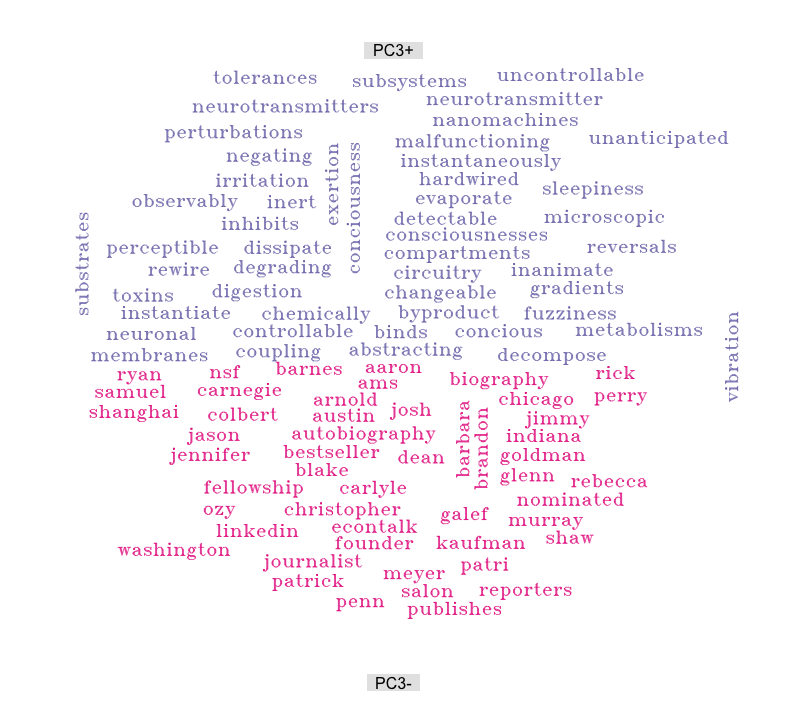In December 2015, Robert Cordwell and I cofounded Signal Data Science (website), which we announced on Less Wrong.
Our first cohort has just concluded, and overall went very well. We're planning another one in Berkeley from May 2nd – June 24th. The program is a good fit for people who are both excited to learn how to extract insights from data sets and looking to prepare for industry data science jobs. If you're interested attending the next cohort, we would love to hear from you. You can apply here, or contact us at signaldatascience@gmail.com.
We offer inquiry-based learning and an unusually intellectually curious peer group. Unlike typical college classes, Signal Data Science focuses on learning by doing. You’ll learn from a combination of lectures, short knowledge-reinforcement problems, and longer, more open-ended assignments focusing on analyzing real datasets. (That’s your chance to discover something new!) Don’t worry if that sounds daunting: our instructors will be there to support you every step of the way.
You’ll learn both the theory and the application of a wide array of data science techniques. We offer a pair programming-focused curriculum, allowing students to learn from each other’s strengths. We cover everything from basic linear regression to advanced, industry-relevant methods like support vector machines and dimensionality reduction. You’ll do an advanced, self-directed project at the end of the course. Curious? Check out our showcase of past students’ final projects. Whatever your interests are—from doing something with real-world, industry-relevant applicability to applying cutting-edge neural nets—we’ll work with you to find a project to match your interests and help you showcase it to prospective employers.
Less Wrong readers might be especially interested by Olivia Schaefer's project, which describes results of doing some natural language processing on the Less Wrong comment corpus, explaining how the words pictured in different colors below are at opposite ends of an axis.

I think it is better to assess personal fit for the bootcamp. There are a lot of advantages I think you can get from the program that would be difficult to acquire quickly on your own.
Aside from lectures, a lot of the program was self study, including a lot of my most productive time at the bootcamp, but there was normally the option to get help, and it was this help, advice, and strategy that I think made the program far more productive than what I would have done on my own, or in another bootcamp for that matter (I am under the impression longer bootcamps may develop specific skills at using the software better, but they don't convey nearly the same level of conceptual understanding of statistics in data science, and likewise there are many types of mistakes graduates of other programs will make that graduates of Signal's cohort have been taught not to). When there was not the option to get help, I usually shifted my work schedule and it wasn't much of a problem: there are so many projects to work on, that there was almost always something productive to work on where I wouldn't get stuck (optional exercises on prior projects or making prior projects better). I can see this being very frustrating for some people though, as getting stuck and not having immediate feedback interrupts flow.
Many of the organizational problems didn't seem to really be problems, and seemed more like differences which are good for some and not for others. Pair programming was not always optimal due to the large degree of differences between students. It wouldn't have made sense for everyone to pair program since it would have been holding back some of the faster students. A more rigid structure would have helped people who were less naturally self directed/focused though. Organizational problems that happened with respect to the first cohort in terms of setting up (furniture, internet, whiteboards, etc.) are unlikely to be problems for future cohorts now that the instructors have learned from experience and have a place set up. The first cohort took the risks and costs of such things, which later cohorts probably won't have to worry about.
This is not like other bootcamps, it is less expensive, more individually focused rather than having the entire group doing all the same curriculum, and there are a bunch of rationalists iteratively helping you decide which jobs are best to apply to, who can network you into what position, and which skills actually matter most for aiming for the specific jobs you are aimed at. I don't expect you to be able to have the same opportunities at a normal bootcamp, but a normal bootcamp is probably also lower risk if you don't trust yourself to make things work out (other programs may have quizzes where they throw you out if you fail, and essentially force you to remain focused, with Signal you are more in control yourself, and can take time off to apply to jobs.
Yes, this is correct.
You're good at socializing and very pleasant to be around, and didn't generally had problems finding pair programming partners when you wanted to work with someone. I'm shy, and couldn't even find anyone who wanted to pair program with me most days, even though I was generally interested in working with others, and often asked Jonah or other students if anyone wanted to work together.